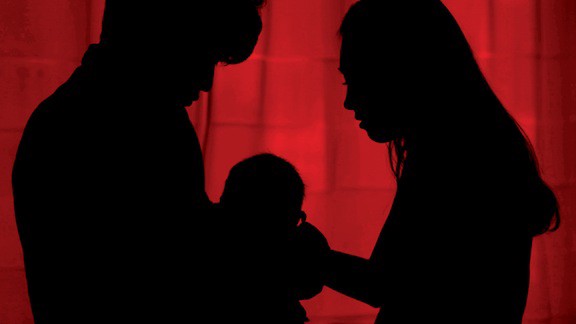Love Child director Valerie Veatch made her directorial debut at the 2012 Sundance Film Festival with the hit Me @ The Zoo (co-directed by Chris Moukarbel). Her highly anticipated follow-up, Love Child, chronicles media immersion and addiction in Korea and will premiere at the 2014 Sundance Film Festival in the World Cinema Documentary Competition. Veatch is one of the youngest filmmakers to have two documentary feature films debut at Sundance.
Love Child will debut at the festival on January 17th.
Please give us your description of the film.
In Seoul, South Korea, a young couple stand accused of neglect when “Internet addiction” in an online fantasy game cost them the life of their infant daughter Sarang [the Korean word for “love”]. Love Child documents the 2010 trial and subsequent ruling that set a global precedent in a world where virtual is the new reality.
What made you pursue this story?
I was in Rome in 2010 when the BBC ran a story about a young couple in Korea who were on trial and suffering from “Internet Addiction.” At the time it struck me as a very poignant moment where the virtual world was impacting the real world. The story and the ruling illustrate what Nathan Jurgenson describes as “digital dualism,” where “the virtual world is not some kind of ontologically distinct realm.” Producer David Foox and I understood this project as an opportunity to have a dialogue around the social impact of emerging internet technologies.
What was the biggest challenge in making the film?
Love Child takes place in Korea and was created by a Korean and US producing team working in close collaboration. The result is a bilingual Korean and English language film. However, the storytelling also had to be bilingual and resonate with both Korean audiences and, for the purposes of HBO, a U.S. television audiences. I think the result is a very unique piece of media and I’m so excited to hear what the Sundance audiences think of this film.
What advice do you have for other female directors?
Making a film requires a rock-solid belief in your own vision and the humility and flexibility to deal with reality as it unfolds. It takes a strong will and belief in yourself to communicate — clearly and gently — your creative vision. My advice would be to believe in your voice and trust in the process and ask for advice from everyone you can. Work as hard as you can.
What’s the biggest misconception about you and your work?
I would be flattered if anyone had any conceptions about my work. Misconceptions would be welcome, too.
Do you have any thoughts on what are the biggest challenges and/or opportunities for the future with the changing distribution mechanisms for films?
The revenue model for independent filmmaking has obviously transformed with online distribution methods. My first film got funding from a Kickstarter campaign, which was possible because of free video sharing platforms. The traditional media model still holds sway, but more and more, anyone with a story and a movie camera — and in my case a laptop — can create and share projects. Content platforms have always had the power and in some ways that might not change, but it’s amazing to see how many ways you can share your film with an interested audience.
Name your favorite women directed film and why.
Teknolust by Lynn Hershman Leeson is a wonderful film and I love her unique vision. A truly important director.







